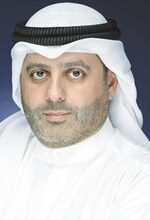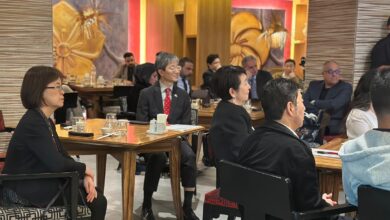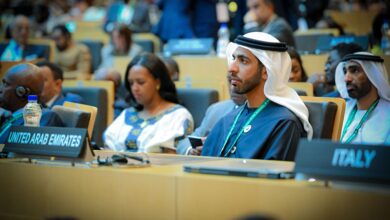France and Kuwait explore AI in healthcare at DDI event on World Diabetes Day
The future of France-Kuwait healthcare collaboration is very promising, with Kuwait well-positioned to achieve significant improvements in healthcare quality in the coming years -- Dr. Remy Rémi Thiolet, Head of International Affairs at Gustave Roussy
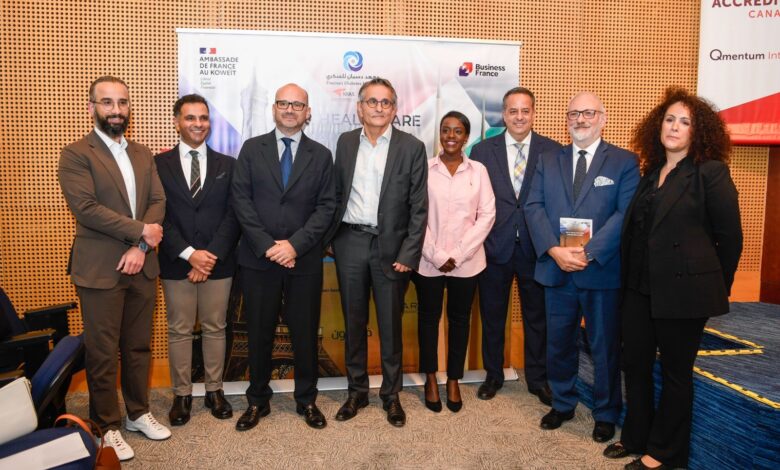
The French Embassy in Kuwait, in partnership with the Dasman Diabetes Institute which is affiliated with the Kuwait Foundation for the Advancement of Sciences, hosted a panel discussion on World Diabetes Day under the theme ‘Artificial Intelligence and Healthcare: Smarter Care’. The event explored the transformative role of AI in medical research, patient care, and healthcare innovation.
The discussion was attended by Dr. Faisal Hamad Al-Rifai, DDI Acting Director-General; Dr. Suleiman Al-Muzaydi, Head of Surgery at Jaber Hospital; Dr. Amina Khamis, Professor at the European Genomics Institute for Diabetes (EGID), University of Lille; Dr. Fawaz Zaid, Senior Researcher at DDI, and Dr. Jean-François Paul, Radiologist and CEO of Spimed-AI (Paris), along with a broad gathering of doctors, researchers, academics, and private healthcare representatives.

Ambassador of France H.E. Olivier Gauvin praised the distinguished health partnership between France and Kuwait, highlighting French institutions that care for Kuwaiti patients, including Gustave Roussy Institute, Institut Curie, Institut Pasteur, Rothschild Foundation Hospital, and the AlmaViva Group.
He noted that five memoranda of understanding were signed in Paris during His Highness the Amir Sheikh Mishal Al-Ahmad’s visit.
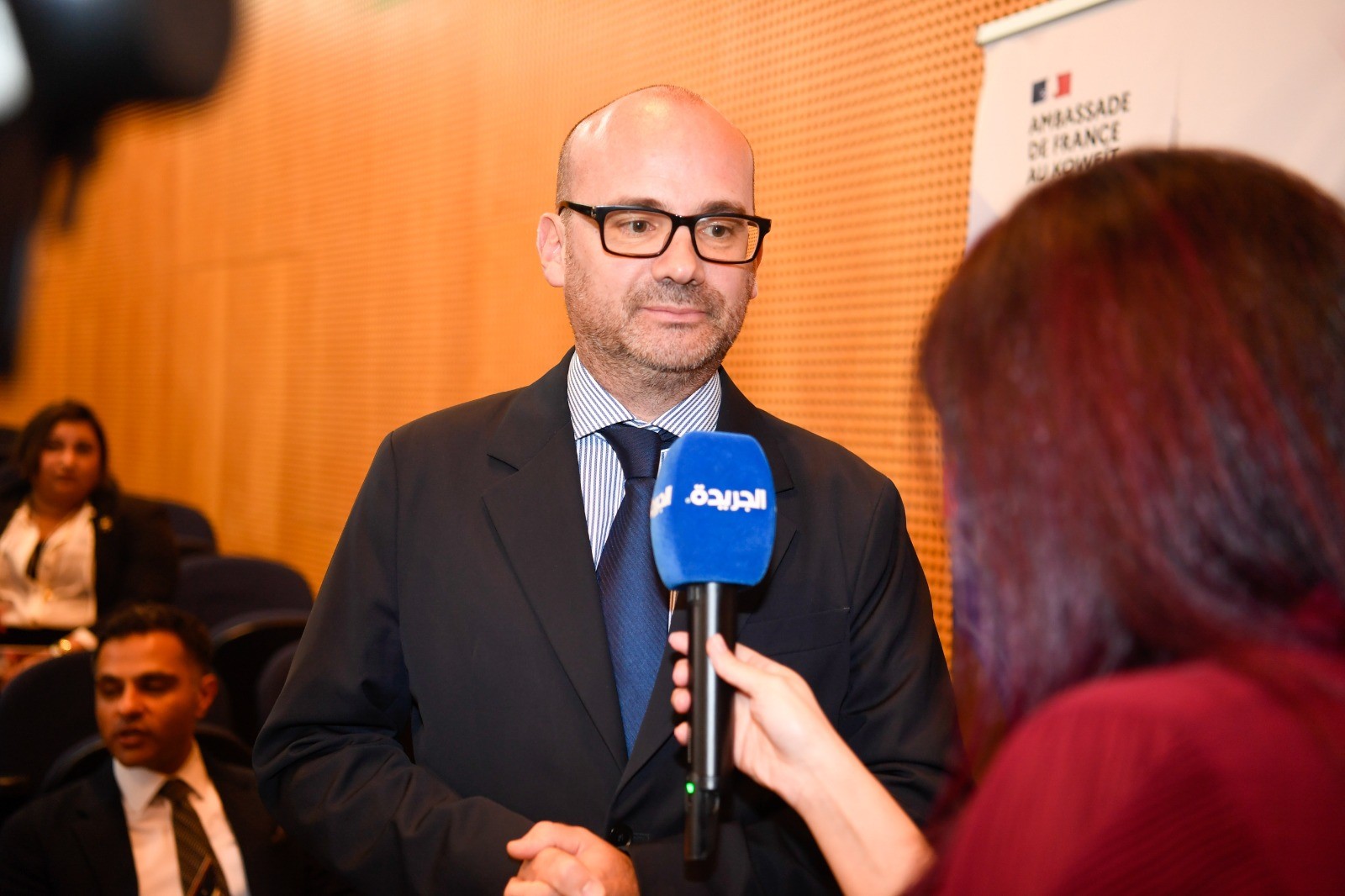
“Our partnership in health is distinguished, and Kuwait hosts outstanding experts, researchers, and scientists,” the French envoy said. He praised France’s role as a European hub for AI technology and its leadership in establishing global AI standards, recalling the AI Summit in Paris (February 2026) to beattended by a Kuwaiti delegation led by Communications Minister Omar Al-Omar.
Quoting French President Emmanuel Macron, the ambassador added: “In France, we believe in innovation, acceleration, and investment — but we also want trustworthy AI, AI that rebuilds unity within the international community.”
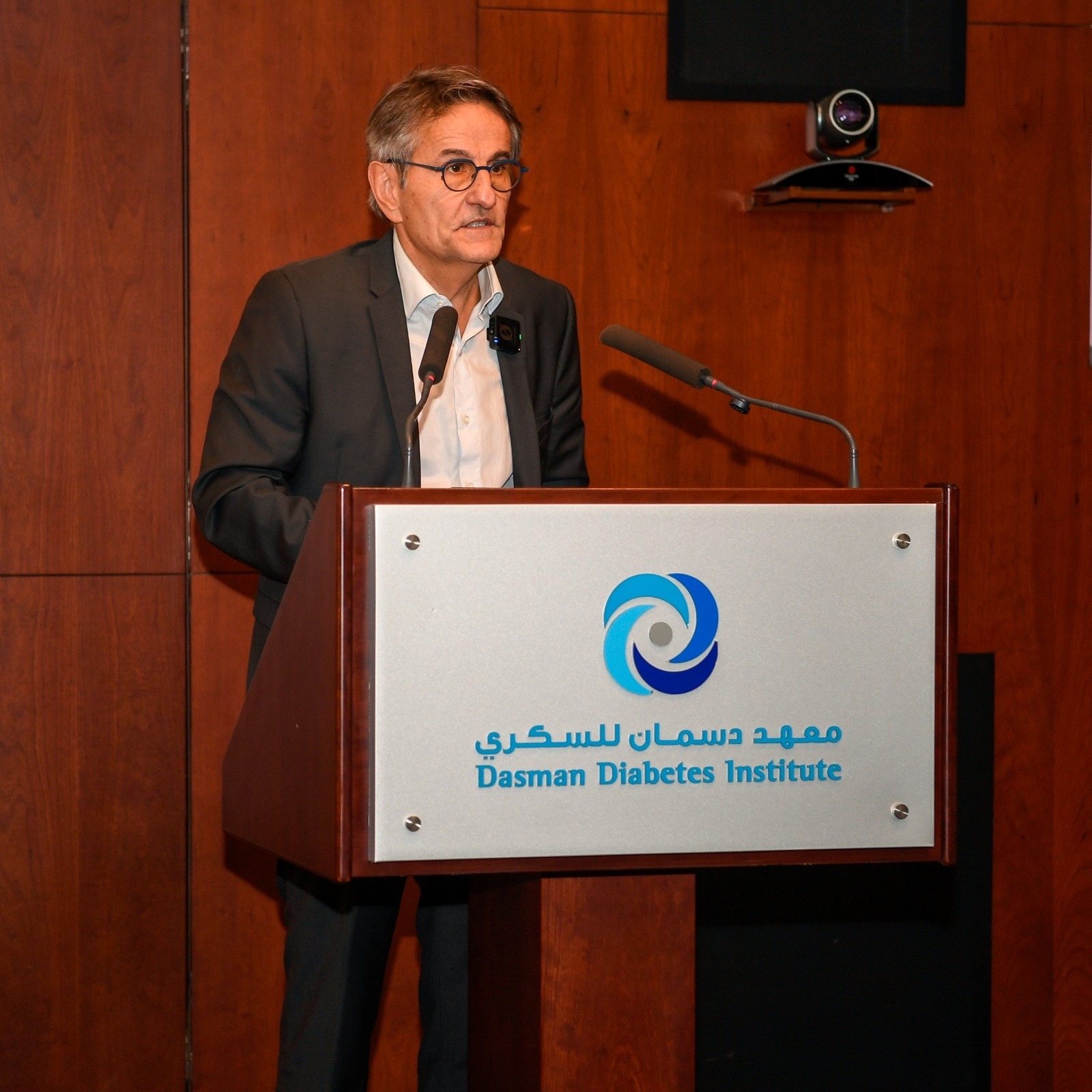
He stressed that the conference series aims to deepen discussions on AI’s societal impact, supporting economic progress and intergenerational development. Previous sessions addressed AI in economics, law, and cybersecurity, bringing together French and Kuwaiti experts to strengthen partnerships and foster future collaboration.
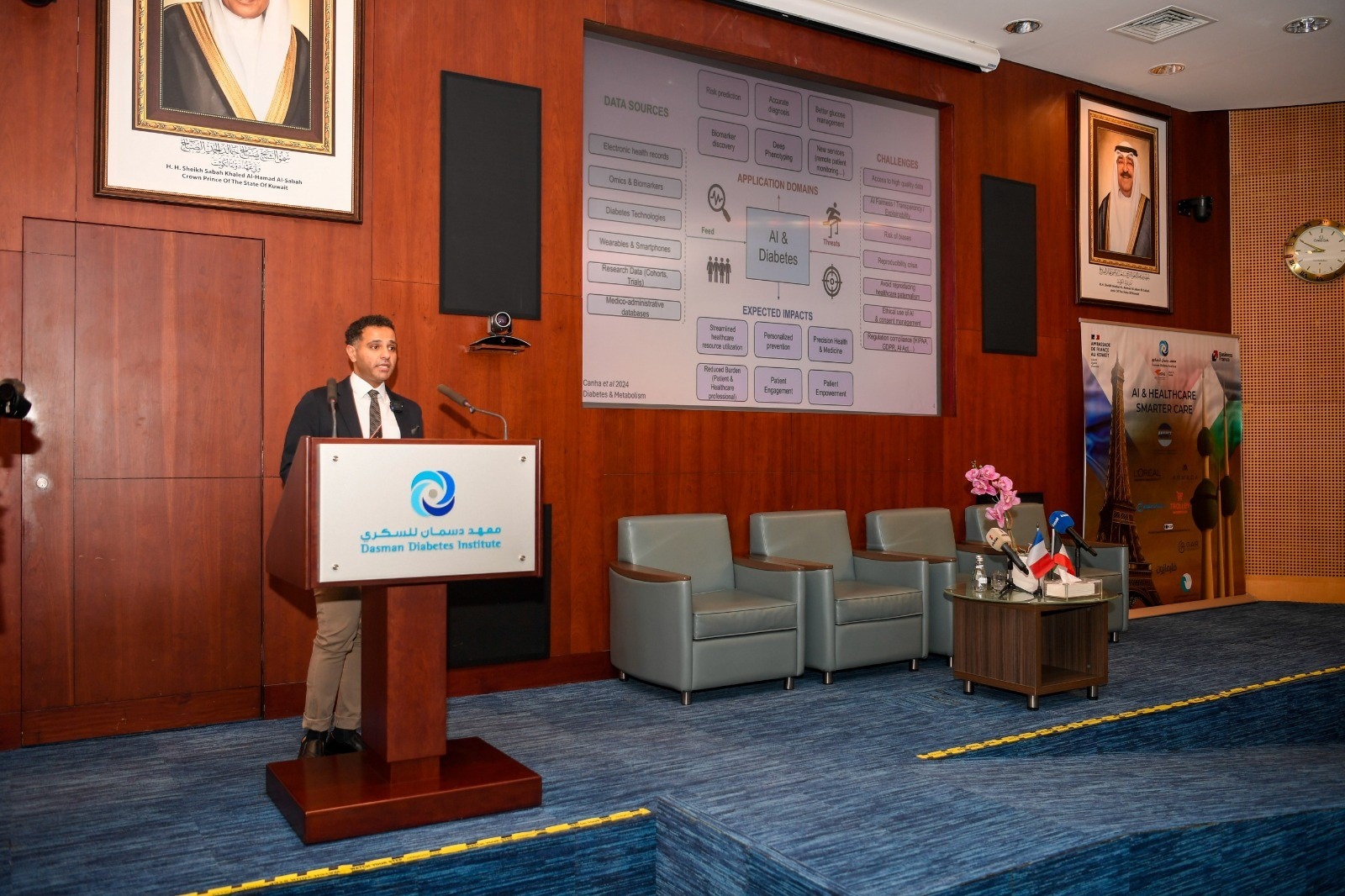
Ambassador Gauvin also highlighted groundbreaking medical achievements:
- Robotic-assisted radical prostatectomy using MEDBOT, performed remotely by Dr. Saad Al-Dosari from Strasbourg, showcased at the International Conference of the World Society of Robotic Surgery in July 2025 before 2,500 surgeons.
- Remote surgery by Dr. Suleiman Al-Muzaydi in Kuwait on a patient in Brazil 12,000 km away, recognized in the Guinness World Records—a milestone in global connected medicine.
He concluded by emphasizing the importance of Dasman Diabetes Institute as a leading center in diabetes research and a key partner in France-Kuwait healthcare collaboration, expressing gratitude to Dr. Al-Rifai for his efforts in supporting bilateral health initiatives.
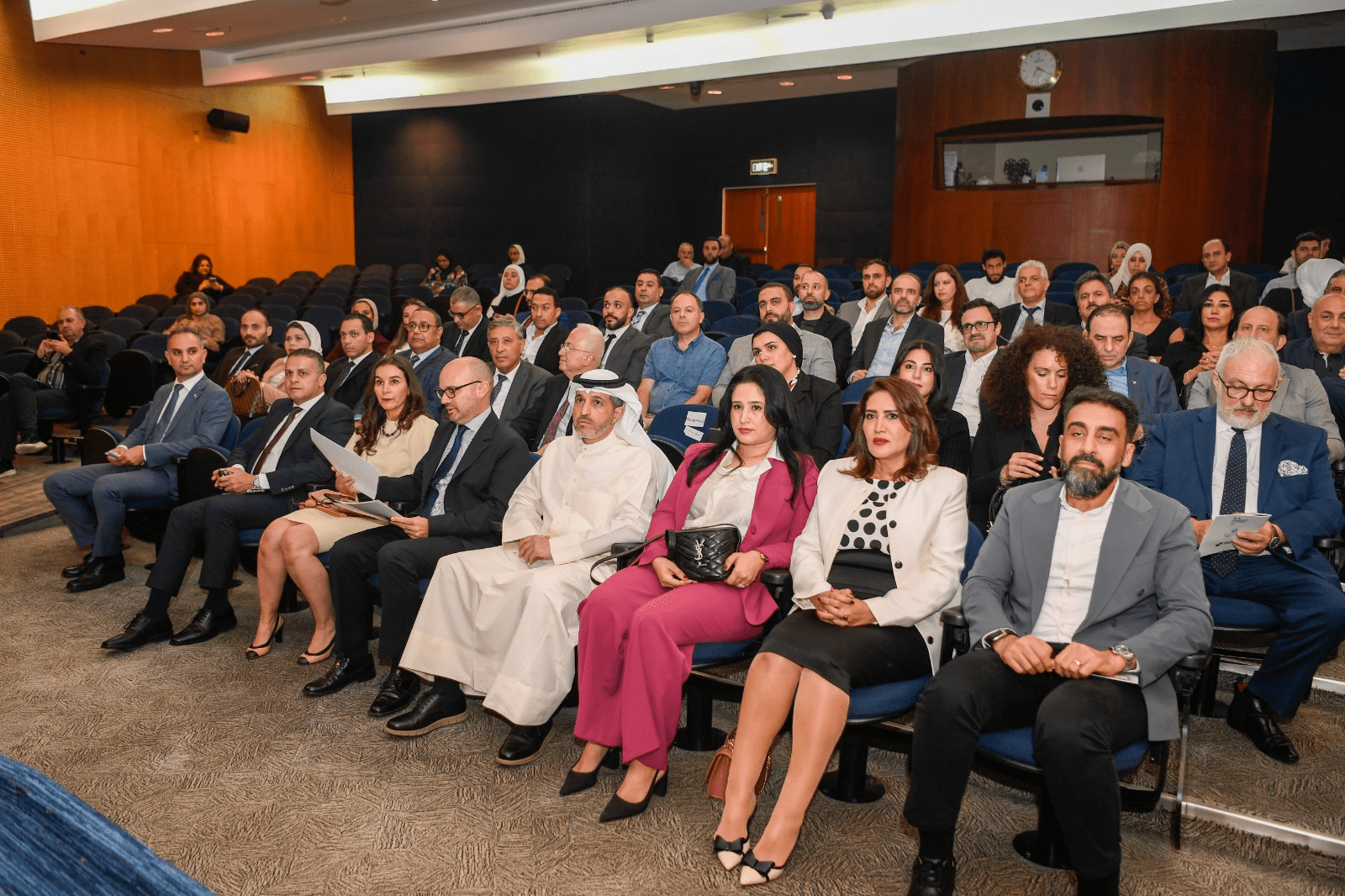
Dasman Diabetes Institute: Leading Healthcare Innovation
Dr. Faisal Al-Rifai praised the collaboration with the French Embassy and reaffirmed DDI’s commitment to advancing healthcare through innovation and international partnerships.
“At DDI, we focus on linking cutting-edge research with real medical needs. Partnerships with global leaders like France open new horizons for multidisciplinary collaboration, ensuring Kuwait remains at the forefront of healthcare innovation. Integrating AI into clinical practice is not just a technological advancement—it is a valuable opportunity to improve patient outcomes, particularly for diabetes patients,” he said.
He outlined DDI’s vision: “We aim to be the regional leader in diabetes research across the Middle East and North Africa and achieve international recognition.”
AI as a Core Tool in Health Research
Dr. Fawaz Zaid, Head of Research at Dasman, highlighted AI’s essential role in advancing healthcare, particularly in diabetes and obesity research. “AI is now present in all fields, not just healthcare, enabling us to analyze large datasets with unprecedented precision,” he explained, citing Continuous Glucose Monitoring (CGM) devices as a key tool generating data that AI can efficiently analyze to improve diagnosis and treatment.
Zaid noted that Kuwait ranks among the highest countries globally in diabetes prevalence, according to WHO reports. He emphasized the ongoing collaborations between DDI and international partners, including the French Embassy, to exchange expertise and advance treatment technologies for diabetes and other chronic diseases. Additional sessions at the event focused on cardiovascular disease and AI applications in diagnosis and treatment.
Gustave Roussy: Advancing Cancer Care and Technology
Dr. Remy Rémi Thiolet, Head of International Affairs at Gustave Roussy, a leading European cancer research and treatment institution, expressed delight at visiting Kuwait. Initially attending government and health ministry meetings, he accepted the embassy’s invitation to exchange expertise.
Thiolet stressed the importance of technological advances in healthcare, particularly in cancer treatment, noting that progress in imaging, laboratory research, and diagnostics is a global priority. He highlighted Gustave Roussy’s €140 million annual investment in medical innovation and its integrated medical campus, including a cancer hospital, startup incubators, and international partnerships.
Among the innovations, he cited 3D-printed candy containing prescribed medication, allowing children to receive treatment in a palatable form rather than painful injections or pills. He also highlighted advances in robotic surgery, imagining a future where surgical devices in Kuwait could be operated remotely by French experts.
On Kuwait’s healthcare infrastructure, he noted: “Medical standards in Kuwait are advanced, with highly trained oncologists. Previous challenges were largely related to infrastructure and equipment, but the situation is transforming with the opening of the new Kuwait Cancer Center (KCC), fully equipped to the highest standards.”
Thiolet concluded by saying the future of France-Kuwait healthcare collaboration is very promising, with Kuwait well-positioned to achieve significant improvements in healthcare quality in the coming years.








